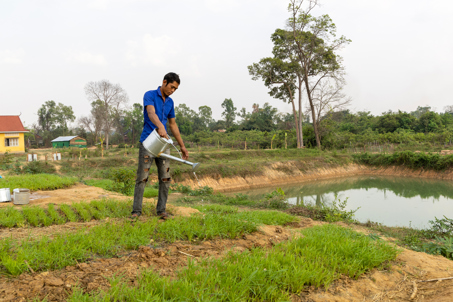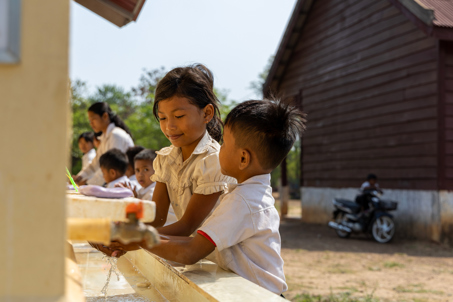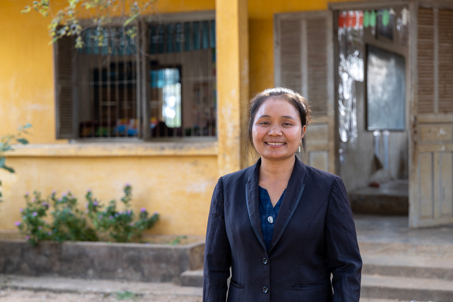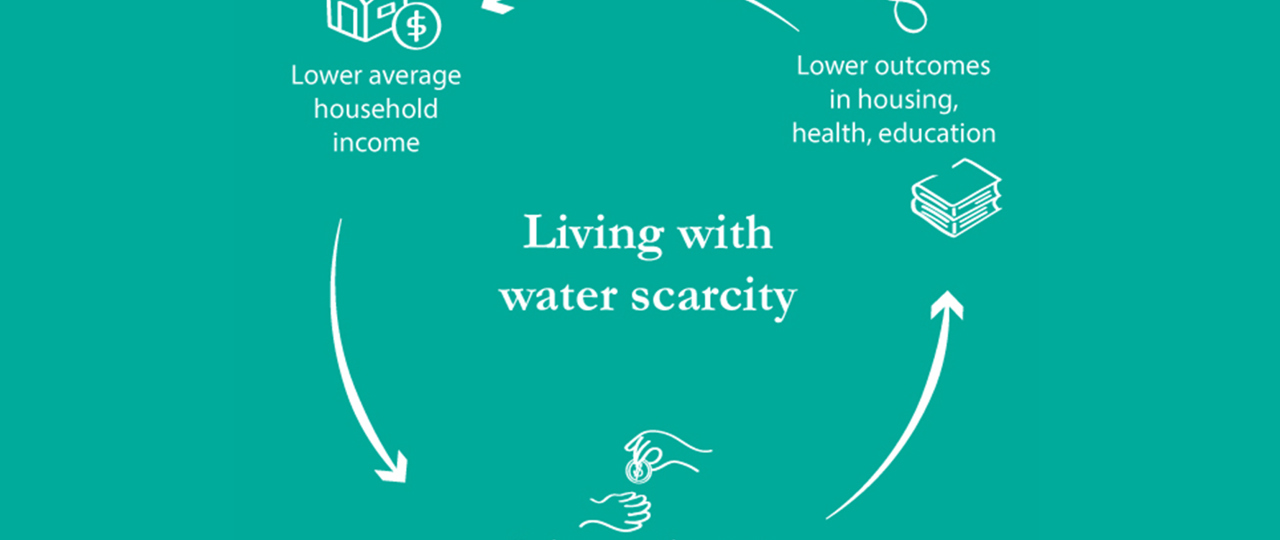It all starts with water
Imagine a world without clean water. A world where food couldn’t grow, humans and animals suffered from thirst and the planet remained barren.
Around the world, many are experiencing this, with over 2 billion people, many including children, lacking access to safe and clean water.
It starts with water, but change can only start with you.

Salin is a principal of a school in Cambodia that now has access to clean water. Photo: Tim Lam/Caritas Australia
It’s simple - water is life.
Only with it can families grow crops and food, spend less money buying water and have more income to send their children to school and support their education.
Water means...

The garden at Salin's school is flourishing thanks to a nearby water station. Photo: Tim Lam/Caritas Australia
Nourishment
Water is essential for not only growing crops and producing food, but also critical for a person’s health. Regarded as the most important nutrient, water keeps bodies hydrated and aids vital bodily functions.

Salin teaching students at her school in the Siem Reap province, Cambodia. Photo: Tim Lam/Caritas Australia
Improved Education
At least 1 in 3 schools lack access to water and basic sanitation. These basic facilities are necessary for children to attend classes, with the search for water a time-consuming part of their daily lives.

Children at this school in rural Cambodia can now wash their hands thanks to the establishment of a local water station. Photo: Tim Lam/Caritas Australia
Improved Health
Health and well-being are only possible with safe water to maintain hygiene and sanitation practices. Contaminated water and poor sanitation are linked to the spread of preventable diseases such as diarrhoea, dysentery, hepatitis A and typhoid.

Image: As a school principal, Salin is committed to teaching young children in her community. Credit: Tim Lam/Caritas Austalia
Financial Security
In 80% of water-deprived households, women and girls carry the burden of water collection. Worldwide, women will spend approximately 200 million hours altogether collecting water. This often leaves women with less time for education, work or caring for their families, reinforcing the cycle of gender inequality.
A life-changing gift
Like many families in her village in Cambodia, Salin faced constant water shortages which made it difficult to provide safe drinking water for her family.
See how her life changed and the impact that a simple water station had on this entire community.

How lack of clean water traps families in poverty
2.2 billion people do not have access to safely managed drinking water, forcing them to experience a life of poverty.
Health and well-being are only possible with safe water and maintaining hygiene and sanitation practices.
The important thing to remember is that poverty is not a choice. With your support, we can help communities like Salin’s to create lasting change.
2.2 BILLION
people around the world do not have safely managed drinking water services
200 MILLION
The number of hours women and girls spend collecting water worldwide, every day
NEARLY 40%
of people around the world lack basic handwashing facilities














